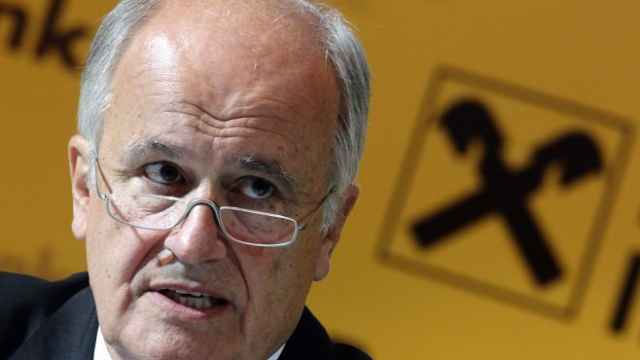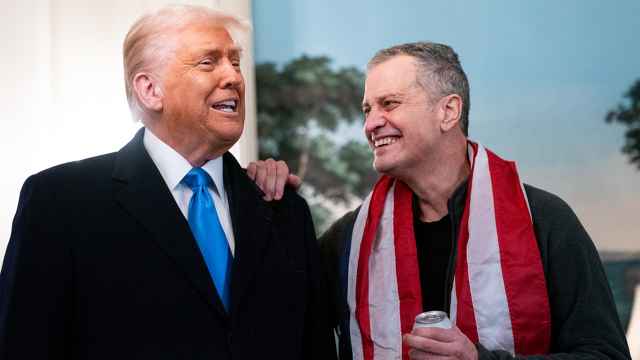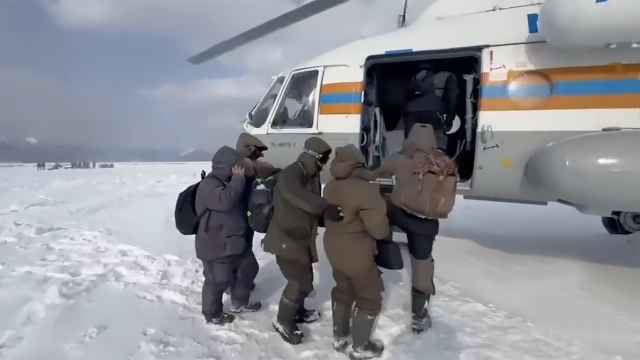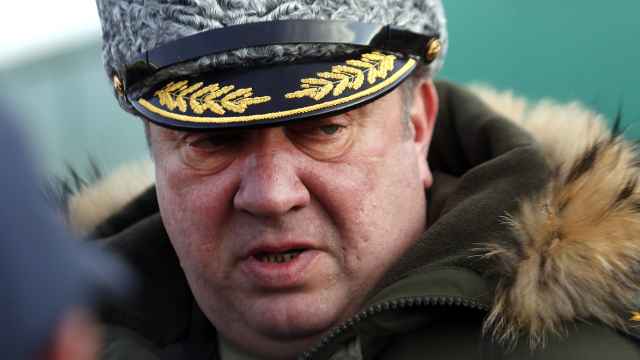"We have always said clearly that we … are staying in Russia, we stand behind our Russian customers and we still think that Russia is a very attractive banking market even if it has become tougher — hopefully just temporarily," Sevelda said.
It was music to the ears of the Austrian-Russian Friendship Society, whose meeting on Thursday evening drew more than 100 people including executives from companies such as OMV and Immofinanz and the Russian ambassador to Austria.
The testy tone signaled that while the government may be taking a harder line on Russia's suspected role in the Ukraine conflict, much of Austria's commercial community remains firmly on the side of business as usual with Moscow.
Austria has walked a careful line between solidarity with its European Union peers and keeping lines of communication open with Moscow.
President Vladimir Putin visited Vienna in June, when Gazprom and OMV sealed a deal to extend the Russian South Stream gas pipeline to Austria.
Profits at Raiffeisen and UniCredit Bank Austria depend heavily on Russia, but Russia accounts for less than 3 percent of foreign trade.
Ludwig Scharinger, a former Raiffeisen banker who heads the society, which has thousands of members, told the crowd that Western leaders and media were giving Russia too hard a time.
"We don't want sanctions against Russia. We want to work closely with the Russians as we have always done in the past, and may it stay this way," he said, in a gilded palace once owned by Emperor Franz Stephan in the 18th Century.
A man who identified himself as a Viennese doctor said economic sanctions were hurting the economy across Europe.
"Parts of the Austrian press label Putin a criminal. They publish pictures of Russian tanks and say Putin is marching into Ukraine. This is all baiting, and baiting is the first form of fascism," he said.
Others complained that the United States and its ally Britain were pushing Europe around over Ukraine and called for neutral Austria to assert itself for a more self-assured and independent European stance.
Sevelda, whose bank also operates in Ukraine, put the best face on things, saying Raiffeisen could actually benefit from Western pressure on Russian banks.
"There will no doubt be a flight to quality and a flight to size," he said. "As a banker you need strong nerves — that's the way it is — and we have shown we have them."
A Message from The Moscow Times:
Dear readers,
We are facing unprecedented challenges. Russia's Prosecutor General's Office has designated The Moscow Times as an "undesirable" organization, criminalizing our work and putting our staff at risk of prosecution. This follows our earlier unjust labeling as a "foreign agent."
These actions are direct attempts to silence independent journalism in Russia. The authorities claim our work "discredits the decisions of the Russian leadership." We see things differently: we strive to provide accurate, unbiased reporting on Russia.
We, the journalists of The Moscow Times, refuse to be silenced. But to continue our work, we need your help.
Your support, no matter how small, makes a world of difference. If you can, please support us monthly starting from just $2. It's quick to set up, and every contribution makes a significant impact.
By supporting The Moscow Times, you're defending open, independent journalism in the face of repression. Thank you for standing with us.
Remind me later.





